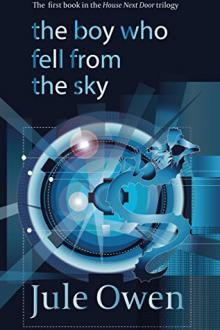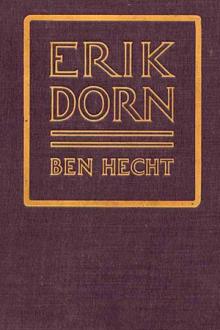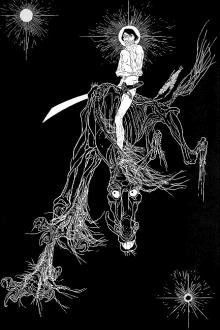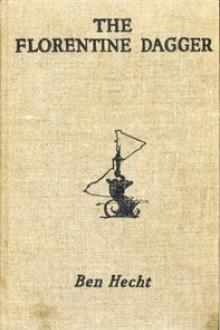A Thousand and One Afternoons in Chicago
Book Excerpt
Now one can follow Fanny. She walks out of the courtroom. The street swallows her. Nobody in the crowds knows what has happened. Fanny is anybody now. Still, one may follow. Perhaps something will reveal itself, something will add an illuminating touch to the incident of the courtroom.
There is only this. Fanny pauses in front of a drug-store window. The crowds clutter by. Fanny stands looking, without interest, into the window. There is a little mirror inside. The city tumbles by. The city is interested in something vastly complicated.
Staring into the little mirror, Fanny sighs and--powders her nose.
THE AUCTIONEER'S WIFE
An auctioneer must have a compelling manner. He must be gabby and stentorian, witheringly sarcastic and plaintively cajoling. He must be able to detect the faintest symptoms of avarice and desire in the blink of an eyelid, in the tilt of a head. Behind his sing-song of patt
Editor's choice
(view all)Popular books in Essays, Non-fiction, Fiction and Literature
Readers reviews
- Upvote (0)
- Downvote (0)
"Comedies, dialogues, homilies, one-act tragedies, storiettes, sepia panels, word-etchings, satires, tone-poems, fuges, bourrees, -- something different every day.... Stories seemingly born out of nothing, and written -- to judge by the typing -- in ten minutes, but in reality, as a rule, based upon actual incident, developed by a period of soaking in the peculiar chemicals of Ben's nature, and written with much sophistication in the choice of words. There were dramatic studies often intensely subjective, lit with the moods of Ben himself, not of the things dramatized. There were self-revelations characteristically frank and provokingly debonaire. There was comment upon everything under the sun; assaults upon all the idols of antiquity, of mediaevalism, of neo-boobism. There were raw chunks of philosophy, delivered with gusto and sometimes with inaccuracy. There were subtle jabs at well-established Babbitry."
A few are still worth reading. Most of them are not. Some of them weren't even worth the newsprint they were first printed on.
You might imagine that they'd provide a portrait of Chicago of the era, but they don't -- or only a very diffuse one. The fiction of authors like Edna Ferber or Frank Norris gives a much clearer picture than this supposed journalism.
Hecht is at his best when he concentrates on individuals or the ironies of the newspaper business -- as in these vignettes:
"Don Quixote and His Last Windmill"
"The Watch Fixer"
"Vagabondia"
"The Man from Yesterday"
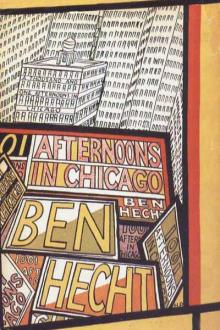
 Free Download
Free Download